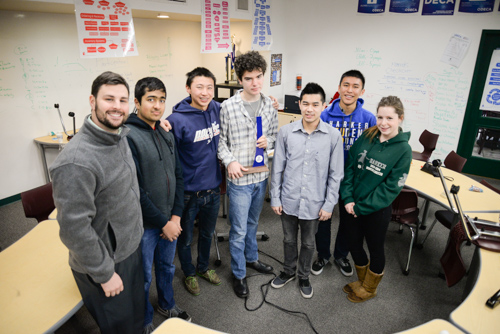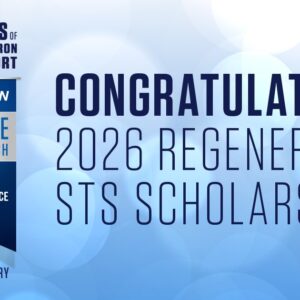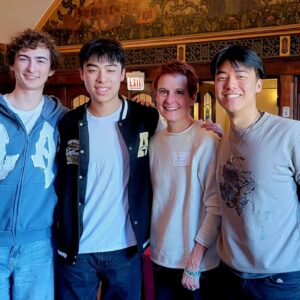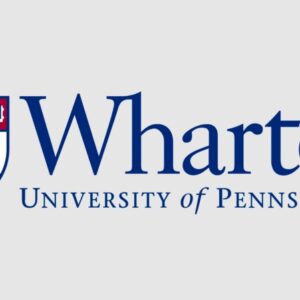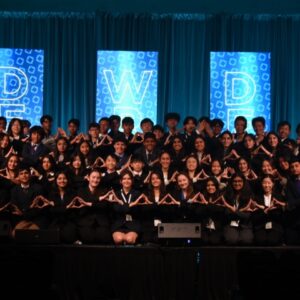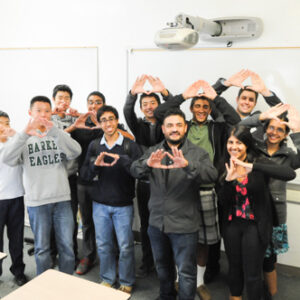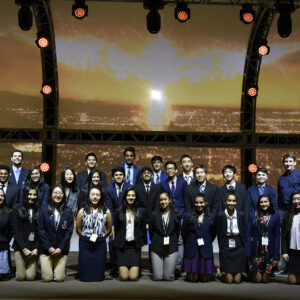Three stock-picking teams from Harker qualified to participate in The Stock Market Game at the international DECA conference in May and Harker students grabbed three of 25 top spots in the Western region, beating out more than 1,200 other Western teams.
Teams with the highest portfolio returns compared to the S&P 500 stock index made it into this elite group.
Harker’s David Lin, grade 12, earned first place in the Western region and third in the nation. His portfolio totaled a whopping $179,388, or nearly 80 percent over the S&P 500 stock index.
Steven Wang, Aaron Huang and Leo Yu, all grade 12, placed 14th. Their portfolio totaled $116,549 for a return of 16.8 percent above the S&P 500. The team of Alex Tuharsky and Ashwath Thirumalai, both grade 12, placed 18th with a 15.3 percent return and a closing portfolio of $115,078.
These three teams are eligible to defend their investment decisions in The Stock Market Game at DECA’s international conference in Georgia in May. DECA prepares students for careers in marketing, finance, hospitality and management.
“We are very proud of these students,” said Juston Glass, director of Harker’s business and entrepreneurship program. “We are sending the No. 1 ranked finalist to represent the Western region and defending our international title from last year.
“There’s a lot of competition,” Glass added. “We posted the Top 10 Harker investors every week for the whole school to see and have fun with. It was cool to see who moved up and down in the rankings each week.”
The Stock Market Game requires students to select stocks and manage a virtual investment portfolio. The teams start with $100,000 of make-believe money on Sept. 8 and manage their portfolios until “the sound of the bell” on Dec. 12.
Students can invest in instruments other than common stock. “You can invest in mutual funds, exchange traded funds and bonds, as well as stocks. Thus, many of my holdings in the game were not stocks,” Tuharsky says.
“I’m a value investor, meaning that I pick stocks that I think are undervalued (their true value is larger than the value dictated by their market price) and buy these stocks,” Thirumalai explained. “I determine value primarily based on growth trends and corporate financials.”
The Tuharsky-Thirumalai team hit a mother lode with JDST. It is a stock fund “equivalent to a leveraged short position on gold miners,” Tuharsky says. It was the team’s best performer.
The Stock Market Game “teaches participants to stay up-to-date on their business news, and generally creates more interest in the stock market,” Tuharsky said. Although students learned various methods of analysis and scoured the financials, Thirumalai says he also learned that luck plays a role in picking stocks.
Seven Harker faculty members also participated in the game, but didn’t quite match the students’ returns. Art teacher Josh Martinez ended 9 percent above the S&P, earning him second place in the Western Region teacher group.
The Stock Market Game is just one of dozens of competitive events DECA sponsors for high school and college students. About 200,000 high school students participate in 3,500 high school DECA chapters nationwide. More than 5,000 teams participate in The Stock Market Game nationwide.
Tuharsky said he was already interested in a career in finance or economics and the thrill of “The Stock Market Game has pushed me further in that direction.” Win or lose, Thirumalai said the experience was “a ton of fun.”
